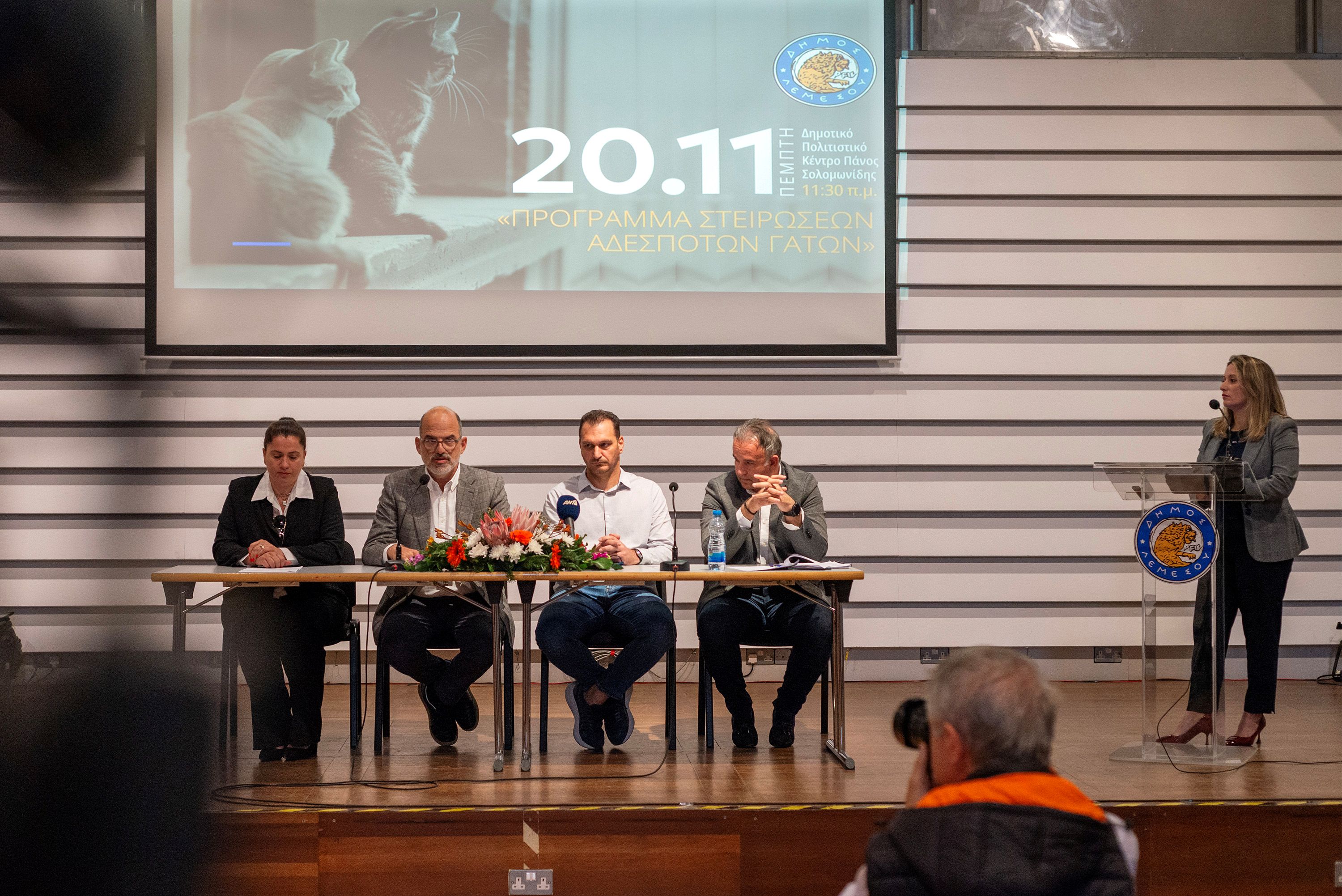The Limassol municipality has launched a large-scale sterilisation programme aimed at curbing the city’s soaring stray cat population.
Local authorities say the initiative is paramount for animal welfare, public health and urban cleanliness.
During a press conference on Thursday, Limassol mayor Yiannis Armeftis, announced that the €40,000 municipal programme would fund the sterilisation of approximately 690 stray cats.
The scheme is being implemented in collaboration with local volunteers, animal welfare groups and four veterinarians, Andreas Epaminondas, Maria Vafeiados, Marios Nikolaos and Panikos Stylianos.
“At this stage, our main goal is to improve the quality of life of the animals themselves, reduce new births of stray cats, protect public health and ensure the wider cleanliness of the city,” Armeftis said.
He noted that the programme had been carefully designed with input from multiple organisations and has received all necessary approvals from the veterinary services.
The first phase will focus on areas with especially high stray populations, including the historic centre, Vathika and the Garyllis riverbed.
Volunteers will receive vouchers identifying each cat brought in for sterilisation, ensuring proper tracking and oversight.
Of the 690 targeted animals, 450 are female and 240 are male, an approach designed to mitigate reproduction rates long term.
While acknowledging that the problem “will not be solved overnight,” Armeftis expressed confidence that systematic, repeated sterilisation cycles would gradually stabilise and eventually reduce stray numbers.
The initiative has earned praise from veterinary authorities.
Dimitris Epaminondas, president of the veterinary association, described the programme as a “comprehensive approach” and said vets stand ready to support similar efforts across Cyprus.
“The issue of stray animals requires action at both central and municipal levels,” he stressed.
Stalo Stefanou, President of the Animal Welfare Committee, echoed the sentiment, highlighting the urgent need for prevention and public education.
“It is neither normal nor acceptable for an animal species to outnumber the human population due to the human factor. The responsibility is ours,” she said.
Limassol’s initiative unfolds against the backdrop of a heated nationwide debate over the long-standing struggle to control the vast stray cat population.
Animal welfare commissioner Antonia Theodosiou in September announced a proposed seven-year national action plan for mass sterilisation, developed with animal welfare organisations.
These groups estimate that at least one million stray cats live on the island and figures may even be closer to two million.
Theodosiou has urged the government to increase the current €100,000 annual sterilisation budget, calling it inadequate for the scale of the crisis.
Animal welfare organisations also say they are reaching breaking point.
Elena Loizidou, head of Cat Alert Nicosia, told the committee that a budget of €100,000 is sufficient for just 2,000 sterilisations.
Moreover, volunteers have been left to shoulder the financial and logistical burden, often paying for private veterinary procedures themselves.
Without expanded state intervention, she warned, thousands of kittens will continue dying each season from disease, malnutrition and poisoning.
She added that solutions must include proper legislation, mandatory pet sterilisation and low-cost access to services.






Click here to change your cookie preferences